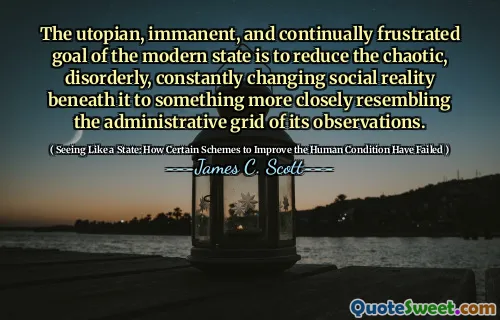In "Seeing Like a State," James C. Scott explores how various state-led initiatives aimed at improving society often miss the mark. He argues that these grand schemes frequently lack a nuanced understanding of local contexts and complexities, leading to their failure. The book emphasizes the idea that state perspectives can oversimplify human behaviors and traditions, disregarding the knowledge that local populations hold.
Scott illustrates his points through historical examples, such as the failures of collectivization in agriculture and planned urban developments. He contrasts the rigidity of state planning with the flexibility and adaptability of local practices. This highlights how grassroots knowledge can provide effective solutions that top-down approaches overlook. The author delves into how the state's desire for order often leads to detrimental consequences for communities.
More »
Today Birthdays
1955 -
Max Lucado
1946 -
John Piper
1842 -
William James
1907 -
Abraham Joshua Heschel
1887 -
Aldo Leopold
1755 -
Alexander Hamilton
1976 -
Alethea Kontis
1971 -
Mary J. Blige
1825 -
Bayard Taylor
1943 -
Jim Hightower
1885 -
Alice Paul
1923 -
Carroll Shelby
1928 -
David L. Wolper
1954 -
Kailash Satyarthi
1972 -
Amanda Peet
1946 -
Naomi Judd
1970 -
Malcolm D. Lee
1955 -
Christian Marclay
1973 -
Rahul Dravid
1987 -
Jamie Vardy
1942 -
Clarence Clemons
1992 -
Fatima Sana Shaikh
1948 -
Larry Harvey
1930 -
Rod Taylor
